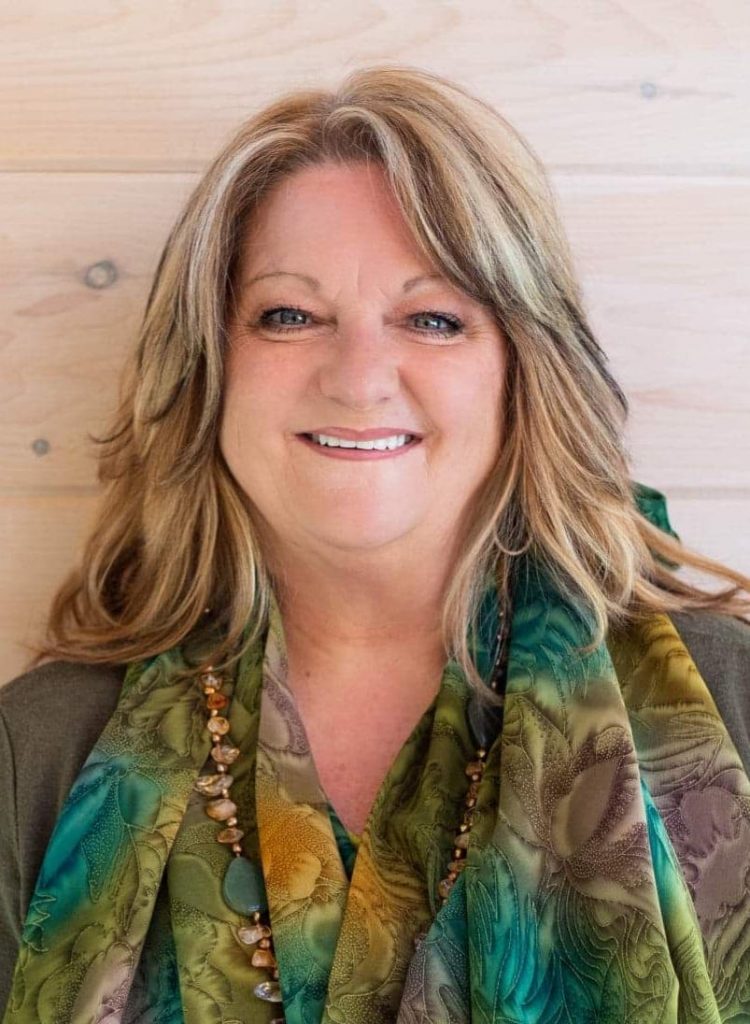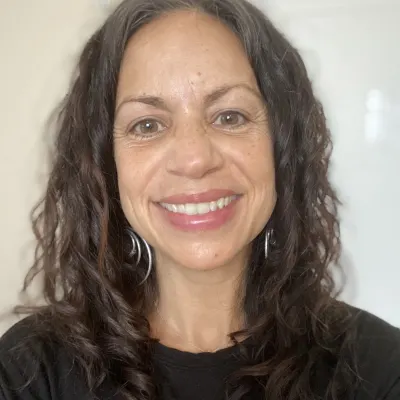The Women Who Mule Meetup group continues to offer insightful monthly Meetups for women in tech and allies located around the world. Whether they are discussing recent product updates, a day in their life as an integration practitioner, or offering advice for navigating life as a working mom, the women who speak and share their stories are inspirations. This blog features a few of the Women Who Mule members sharing personal experiences and advice to other women in tech.
Let’s meet the women sharing their stories.
Meet the women
Diane Kesler

My name is Diane Kesler, presently a MuleSoft Admin/SME/Lead on a federal contract with Perspecta and MuleSoft Architect on a state contract with Hoegg Software. I love the versatility these projects provide since I am working with MuleSoft in two different environments, one on-prem, the other in CloudHub. Both projects are using new integration solutions which allows me to sharpen my skills to recommend and implement the best MuleSoft solution for each given concept.
My experience being a woman in a tech role has been quite rewarding personally. Over the years, there have been challenges at times whereby my voice is not always heard. I have learned to be more assertive or ask pointed questions that steer the course of conversation (or troubleshooting) in the intended direction. One thing I believe that has been most helpful, is to not take it personal, but to instead focus on the issue at hand and work to bring all individuals together at the table for the best solution. Yes, I do refrain from the many “I told you so” events!
Hady Mendez

My name is Hady Mendez and I am a Principal Customer Success Manager at MuleSoft. I have the pleasure of working with a subset of our customers and helping to make them successful on our platform. I am new to MuleSoft’s ecosystem, but not to technology or working with customers. Additionally, I am one of the founding members of the Women Who Mule Meetup group and aim to help women in tech from around the world achieve their best.
Jennie DeRosa

My name is Jennie DeRosa. I am a MuleSoft Architect and have had the opportunity to work with Anypoint Platform for almost six years. As a consultant, I have assisted many clients in their MuleSoft implementation journey. I have spent the majority of my career working in the integration space and still really enjoy it.
Early on, going back to my computer science classes, I grew to accept that I was the only female in the room. After decades in the tech industry, I wish I could say it was different now, but typically I am still the only woman in a meeting or even on a project. I suppose one benefit of this is that there is never a line in the women’s restroom at tech events! I am excited by Women Who Mule and hopeful that sharing our experiences of working in tech will encourage more women to join us!
Natasha Martin

My name is Natasha Martin and I am the Salesforce Marketing Cloud Product Manager for Love’s Travel Stops and Country Stores. My team manages the technical implementation of customer-facing campaigns that span loyalty, sales, mobile app, and partnership campaigns. I began working in tech back in 2011 as a web developer and designer with a dual client/project management role. In 2013, I transitioned to a technical marketer role that included web development, marketing automation, integration, and some project management.
In my current role, I architected an automated campaign solution that delivers messaging to customers in real-time utilizing MuleSoft APIs, point-of-sale integration, and Salesforce Marketing Cloud. I work closely with my team and other teams at Love’s to design system, process, and experience layer APIs to surface data that map to a customer UI and meet requirements for real-time messaging triggers across multiple channels. This allows development against the UI to continue while the team builds out the backend API data connections and logic.
I’ve been fortunate to work with some great mentors (male and female) during my career and love the unlimited potential of the role a technical marketer can solve.
Sudha Krishnamurthy

My name is Sudha Krishnamurthy and I work on the Mulesoft Corporate Strategy team ready to complete two years come October. I manage strategic technology partnerships and identify strategic technology areas for future expansion. In my role, I have the privilege to interact with product, field, and customers to analyze market trends and technology. As much as I am excited about this part of my career, I also want to note it’s a “lone journey” for women in the business space. I strive personally to bring more women to this “business” type of role because we “can” and we bring unique skill sets that are essential to the organization.
Now that we have learned a little bit about these women, let’s dive into their experiences and advice.
What are two tips you have for balancing your ability to stay relevant in tech while juggling responsibilities at home?
Natasha Martin:
1) Set goals! Take an inventory of what you plan to accomplish personally and professionally over the next year and focus on the best resources needed to help you attain those goals. LinkedIn and Twitter have been great tools for keeping a pulse on the latest trends in our industry and signing up for user group sessions or online training when you need a deeper dive. With that being said, we’ve all felt a strong need to balance work life with home life especially during the pandemic. Find ways to work in those personal goals and map out a plan to incorporate them into your weekly routine. Sometimes easier said than done, especially with children in the home! Start with “micro” goals that are easy to accomplish and then build from there. For example, find a 10-minute workout to do at a specific time 3x per week and then extend the workout time or increase the days once you’ve established a routine.
2) Set boundaries! Trying to stay relevant in tech can be overwhelming and it’s easy to get burned out. Remember that you can’t possibly learn it all (repeat to self) so find an area you want to specialize in and focus most of your research and training efforts there.
Jennie DeRosa: Staying relevant in tech is always a concern. Things change so quickly, that sometimes it seems overwhelming to keep up. Adding the responsibilities at home can really make one feel that the treadmill of life is on the fastest speed, running to keep up.
Early in my career, I made it my goal to stay in technical roles and have not wavered much since then. This also meant, though, that I needed a plan to ensure that my skills were kept current. My litmus test was measuring my skills, determining if they were current enough to get another job in the tech industry. Basically, if I lost my job today, would I have the skills necessary to land another job tomorrow?
My approach has been proactive rather than reactive, allowing me to be more in control of my career (rather than circumstances controlling it). The way I achieve this is by doing a yearly skills ‘checkup.’ This includes asking myself the following:
- Am I staying true to my guiding principles (keeping tech-focused)?
- Am I still doing work that is exciting?
- Do I still feel challenged?
- Are my skills relevant? For example, am I working on older versions of a product?
- Will limitations at my current employer (budget constraints, etc.) prohibit me from getting expertise in current technologies?
- Is there a position that I am interested in moving into (i.e. developer to tech lead) and what skills do I need (i.e. new technology)?
Doing this exercise once a year helps me to set a course for the upcoming year. This includes developing a plan for where I want to be. This might include getting additional training, requesting a transfer, voicing an interest in a new position, etc. With the busyness of life, setting goals and subsequent plans for my professional life makes me feel less overwhelmed, providing more balance with my personal life.
With that being said, life happens. There are times when you just cannot fit it all in or want to spend more time with family, taking a hiatus from your professional life. Once you are ready to get back into the tech mainstream, there are a lot of resources available that can be of help to update your tech skills. This includes:
- Online classes that are low cost or free (e.g. MuleSoft self-paced, Coursera, etc.)
- Certificate programs at local universities
I took four years off from my career when my kids were young. I never thought of it as the end of my technical career journey, but rather a pause from it. Once I was ready to get back into it, I took some certificate courses at University of Washington that allowed me to not only get updated technical learnings, but also provide the validation of my skills that come with certification.
Diane Kesler: Two tips for balancing my ability to stay relevant in tech while juggling responsibilities at home are:
- Keep your family well informed of your goals so they understand why you need them to assist or help with other home responsibilities. Celebrate reaching those goals together, they not only are observing you meeting your goals (thanks to their help), but also, they too are experiencing the importance of goal-setting in their lives.
- I creatively integrate studying with fun activities. I have always said a relaxed mind, retains better. I have created waterproof notes, attached them to my kayak and reviewed them while kayaking on a mountain river. Be creative, it’s amazing how many little pockets of time you can utilize to study.
How do you secure a seat at the table? What has worked for you in the past and/or what hasn’t?
Sudha Krishnamurthy: I have two key learnings to share:
- Stay humble and eager to learn. I have experience working in midsize to large corporations.Yes, the visibility and recognition differ in each organization, regardless, people are smart enough to differentiate “attention seeking loud voices” from “authentic ideas.”
- Never be shy to raise your perspective (trust me as an introvert I am working on this everyday!) because the quality of the decision comes from diverse perspectives.
I started my career as a Computer Science Engineer and when I migrated to the USA I was fascinated by the entrepreneur culture so I decided to shift to business roles. Transitioning to a new country itself was a new challenge, compounded to that was a career change. At the beginning, I wasn’t taken seriously and my inputs were mostly “nice to hear.” It took several attempts to understand my “strength” which is to bring technical and business perspective to the table. Every time I positioned my strength I had a voice at the table, and delivered value to the discussion.
Hady Mendez: Getting a seat at the table is not easy. However, I will always find ways to advocate for myself and my point of view. At a previous company where I worked, I saw a need for more Diversity and Inclusion initiatives and so I worked really hard to connect with the right people to help make that happen. I think a few things have made me successful in having my voice heard: I’m not shy, I try to be honest yet considerate, I seek ways to get involved in activities outside of my main job responsibilities, I’m naturally curious, and I am intentional.
Natasha Martin: Develop relationships. Becoming familiar with colleagues across your organization is an important tool for securing a seat at the table. Learn about the different departments in your company and how they work together to deliver experiences for the customer. Connect with team members in those departments who may align with your team’s goals and foster relationships that expand your influence and help you grow. You likely work with a lot of talented people and it’s always better to pool resources than work in silos. I’m lucky to work with some extremely talented individuals and love learning from them!
One pitfall to avoid is pretending to know it all. Own up to your mistakes and admit when you missed the mark or don’t know the answer or need to research something. You’ll gain credibility and others will trust your opinion when it’s time to make crucial business decisions about a project.
Diane Kesler: The best way that I found to secure a seat at the table is by genuinely being myself. Integrity, honestly, and humility are strong characteristics that sustain my place at the table. I am transparent about what I do or don’t know, with determination to find out answers. I believe this has set the stage for others to count on me for being a reliable source at that table. One thing that hasn’t worked in the past for others that I have observed, is inflating their skill set and trust me, they are quickly exposed when they are called upon to do tasks they don’t know.
What has been a guiding principle for you as you made career decisions/changes/ stepped into a prominent role at a large tech company?
Hady Mendez: I know that as I enter spaces and roles not previously held by women or people of color, I am forging a path for the people who will come after me. It’s important as you move up the ladder that you are always thinking about how you will use any power or influence you obtain to lift up other people. I never forget where I’m from or how hard I’ve worked to get to where I am. And because of that, I will never forgo an opportunity to make that journey just a little easier for someone else.
Sudha Krishnamurthy: Be prepared and raise your hand when given an opportunity — even when you aren’t 100% ready. We, as women, tend to be self critical and underestimate our ability to execute, but if you listen to successful people, and even from our own achievements we would notice that we learned many things during the process. That skill to be resilient is what’s needed in this dynamic environment. Our ability to connect with people, to fail fast, and learn from it goes a long way.
What is your advice for women looking to make the jump into a technical role?
Natasha Martin: Build confidence in yourself, and until then, “fake it ‘til you make it.” Even after 10 years in the industry, this is still a tough one for me. Imposter syndrome is a real thing and it’s important for those just coming into the industry to understand that even seasoned veterans feel like they don’t have all the skill sets needed. Remember that even if you don’t check off all the boxes on a job description, apply anyway! If anything, you’ll gain more experience interviewing for a technical role and that will help you when the right opportunity comes along.
Find a mentor. If you don’t already have one through work or networking, attend user groups and reach out to those who are where you hope to be in the future. They may not all be willing to mentor, but I bet more are than you would expect.
Make a roadmap for where you are now and where you want to be. Use that to build out a plan on how you’ll get there.
Hady Mendez: Take the leap! I started off my career as a technology consultant many moons ago. I went on to be an application developer for over seven years. The skills and lessons I learned early on in my career have stuck with me. People might not expect to find us in technical roles, but we belong there. We are just as smart and competent as any other person in the role. We need to take on technical roles while having our eyes set on leadership positions too. We can do all of these things and so much more.
Diane Kesler: My advice for women looking to make the jump into a technical role is find your passion, what drives you, identify your why for this will be what sustains you when the challenges present. Then begin the course path for that role from the experts; MuleSoft training site, as it maps out various roles and the classes to take for certification to validate competency. Being 4x MuleSoft certified has extremely impacted my career as a woman in tech by challenging me to conquer each exam, building my personal confidence with the material, and elevating me in the market place as a strong asset for hire or promotion.
Sudha Krishnamurthy: Since I shifted from a technical to business role, I take this question as “how do you take on a new journey that you are less familiar with?” I want to share this quote: “You must immerse yourself in an unfamiliar world in order to truly understand your own.” If you are truly passionate about it, please give it a try. You will be surprised how much we are capable of. The universe offers a lot to those who seek and this could be another feather in your hat! Go give it a try!
Thank you to all of our panelists for sharing your insights and experiences. Join the Women Who Mule Meetup group for more great conversations. You can also join the Women Who Mule LinkedIn group to network and connect with others.









